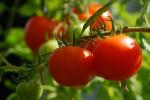H2020 Code Re-farm Project: Consumer-Driven Demands for Rethinking Agricultural Systems
- Type Project
- Status Signed
- Execution 2021 -2025
- Assigned Budget 5.850.917,5 €
- Scope Europeo
- Main source of financing Horizon 2020
- Project website Code Re-farm
As demand for livestock products increases, intensive production systems are on the rise. However, these systems face criticism for their environmental impact, animal welfare issues, and potential impacts on product quality. On the other hand, while contributing to biodiversity conservation and supporting rural communities, extensive systems face economic challenges due to resource scarcity and adverse conditions.
This disparity highlights the need to better understand the relationship between production systems and product quality. The EU-funded Code:Re-Farm project seeks to bridge this gap by focusing on more resilient poultry and goat production systems. Through innovative technologies and comprehensive quality assessment, the project seeks to clarify these links and align production practices with consumer expectations and environmental sustainability.
Intensive livestock production systems (ILPS) are growing rapidly to meet demand. However, there is public skepticism about the intensification of livestock production, driven primarily by adverse links with environmental issues and the sustainable use of natural resources. Furthermore, ILPS are perceived as detrimental to animal health and welfare and can potentially undermine the quality of derived products. Extensive livestock production systems are low-input systems that are critical to supporting the development of rural communities.
However, the economic sustainability of such systems is often questioned, as they face natural resource constraints, adverse climatic conditions, and disease. Products from extensive systems are considered superior quality, but their resource-limited environment undermines their safety. Understanding the key strengths and weaknesses of different farming systems is crucial for sustainable production and delivery of quality products. Therefore, strategic planning and profitability analysis are necessary, taking into account system-oriented challenges and the added value resulting from consumer-driven demands and specialized products. Dairy cattle and pig production are the most important livestock sectors in Europe. However, our proposal will take a different approach. Compared to cattle and pig production, poultry and goat production systems are more resilient, sustainable, and adaptable to change. Code:Re-Farm focuses on poultry and goat production systems with the aim of understanding the links between farming systems and the intrinsic quality of derived products.
Novel technologies will also be leveraged to assess the intrinsic quality of products throughout the value chain, from farm to fork. Insights from this assessment, combined with knowledge about social demands and the sustainability of production processes, will drive alternative solutions (openly shared with the community) that adapt to sustainable, consumer-driven businesses.
- CY.R.I.C CYPRUS RESEARCH AND INNOVATION CENTER LTD (CY.R.I.C CYPRUS RESEARCH AND INNOVATION CENTER LTD)







